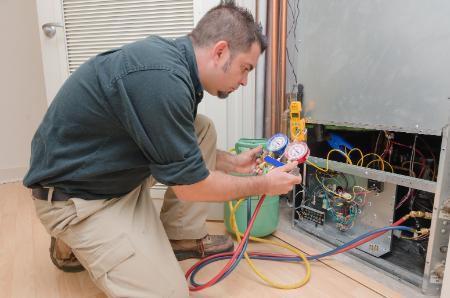Understanding the 2025 Freon Law: What Homeowners Need to Know

The 2025 Freon law, officially known as the HVAC Refrigerant Mandate, is a new set of regulations issued by the Environmental Protection Agency (EPA) and is set to take effect on January 1, 2025. This mandate primarily targets the phasedown of hydrofluorocarbons (HFCs), particularly R-410A and other high-global-warming refrigerants commonly used in HVAC systems. These changes aim to significantly reduce greenhouse gas emissions and encourage the adoption of more environmentally friendly refrigerants. For homeowners, this shift may impact costs and options for future HVAC maintenance or replacement.
Why Is This Mandate Important?
The Freon law addresses the environmental impacts of HFC refrigerants, which contribute heavily to global warming. R-410A and other HFCs have a high global warming potential (GWP) that can trap heat in the atmosphere much more effectively than carbon dioxide. By introducing these regulations, the EPA aims to reduce the number of high-GWP refrigerants entering the market, making way for eco-friendly options like R-32 and other low-GWP alternatives. These new refrigerants have significantly less impact on the environment and comply with the EPA's 2025 regulations, aligning with international standards for environmental protection.
What Does This Mean for Homeowners?
Homeowners may face a few changes when maintaining or replacing their HVAC systems. Since R-410A will be phased out, homeowners with older HVAC systems that use this refrigerant may find it increasingly difficult and costly to obtain. As supplies of R-410A decrease, prices are expected to rise, impacting repair and maintenance costs. Consequently, it may become more economical in the long run to consider upgrading to a new system compatible with approved low-GWP refrigerants.
Another consideration is the increased efficiency and long-term savings of newer HVAC models. While there may be upfront costs associated with upgrading, the reduced energy consumption of modern systems can lead to lower utility bills. Additionally, some states and local utilities may offer rebates or incentives for homeowners making environmentally conscious upgrades, helping to offset the initial costs of new, compliant systems.
How Can Homeowners Prepare?
To prepare for the 2025 Freon law, homeowners are encouraged to schedule an HVAC assessment with a trusted heating and cooling contractor. A professional evaluation can help determine whether it's more cost-effective to maintain the current system with R-410A or consider a replacement. Contractors can provide guidance on low-GWP refrigerant options and help navigate available rebates or financing plans for new systems.
Conclusion
The 2025 Freon law reflects a significant shift in environmental responsibility within the HVAC industry. By understanding these changes and proactively planning for them, homeowners can minimize the financial impact of the transition and enjoy a more sustainable and energy-efficient home. Contact your local heating and cooling contractor today to discuss your options and prepare for the upcoming changes.
Advantage Heating & Cooling LLC is the team to trust for heating contractor services, including air conditioning services. Call us today for freon updates for your air conditioning in Battle Creek.

Don't Hesitate, Schedule Your Battle Creek Heating Repair Services Now!


